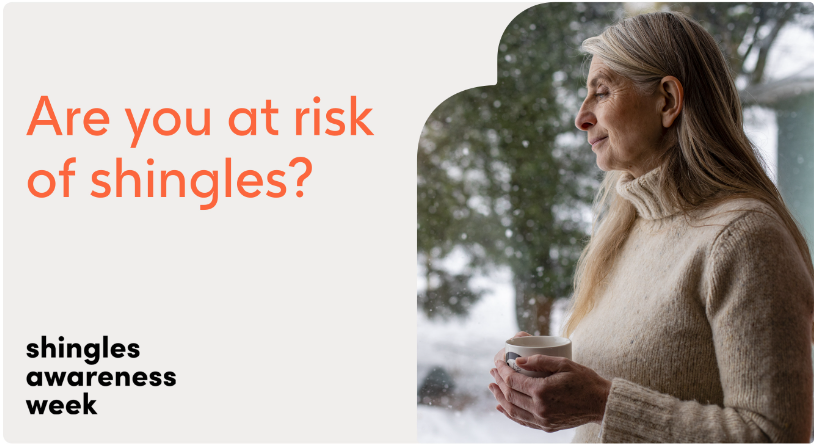1 in 3 people will develop shingles in their lifetime[i], yet an average of 66% of people believe they are at low risk of developing shingles and 27% of people aren’t aware of their risk of developing shingles in the next 10 years[ii]. Shingles typically presents as an itchy rash, with painful blisters across the chest, abdomen, or face[v]. The pain associated with shingles is often described as burning, shooting, or stabbing[vi]. Once the rash is gone, some patients can experience post-herpetic neuralgia (PHN), a painful condition which can last for several months.
The International Federation on Ageing (IFA), in collaboration with GSK, is renewing the commitment to raising awareness of shingles for the second year, jointly hosting Shingles Awareness Week (February 29 – March 05).
About Shingles Awareness Week
Shingles Awareness Week is a global opportunity to encourage candid conversations about the debilitating complications of the disease that can rob people from enjoying precious life moments. The campaign theme this year is ‘press play on your moment, not the virus that causes shingles’.
The goal of Shingles Awareness Week is to increase understanding of the impact of the disease, address common misconceptions and encourage those concerned about shingles risks to speak to their healthcare professional to learn more about the disease.
Call to Action on Shingles Vaccination Policy in the European Union
Despite proven efficacy of the shingles vaccination, the inclusion and funding of shingles vaccination within national immunization programs (NIPs) varies broadly across the European Union. The International Federation on Ageing’s (IFA) recent study entitled Influencing Action on Shingles Vaccination Policy reviewed the policies and perceptions on shingles vaccination across 14 European countries. This project found that only 50% of countries studied included shingles within the NIP and only 28% provided comprehensive funding. No countries studied are currently providing publicly available shingles vaccine coverage rates, which limits the ability of evidence-informed policy changes to occur regarding the full value, use, and accessibility of shingles vaccines. There remain barriers to those who do seek out vaccination, the largest of which was found to be the out-of-pocket cost to patients. Sustained investment in population-wide immunisation programs is an effective way to improve vaccination access and uptake rates.
Therefore, the IFA is calling on policymakers, healthcare authorities, healthcare professionals and civil society organizations, to act on the following:
- Advocate for and prioritize the inclusion of Shingles vaccination within national immunization programs, including the provision of funding to reduce barriers to access.
- Promote new surveillance methods that collect robust, age-disaggregated data on rates of shingles vaccination. Mobilizing this data to better understand the cost/benefits of largescale vaccine campaigns and setting clear coverage targets.
- Develop and disseminate information that can help to increase the awareness of shingles, including the severity of shingles infection, and the increased risk it poses to adults aged 50 years and older as well as individuals who are immunocompromised.
- Improve and expand pathways to vaccination through non-traditional vaccinators such as pharmacists and nurses.
Given the substantial socioeconomic burden of shingles among older adults, and its grave impact on their overall well-being, there is an urgent and crucial need to prioritize shingles vaccination policy to ensure healthy ageing for current and future generations of older people.
